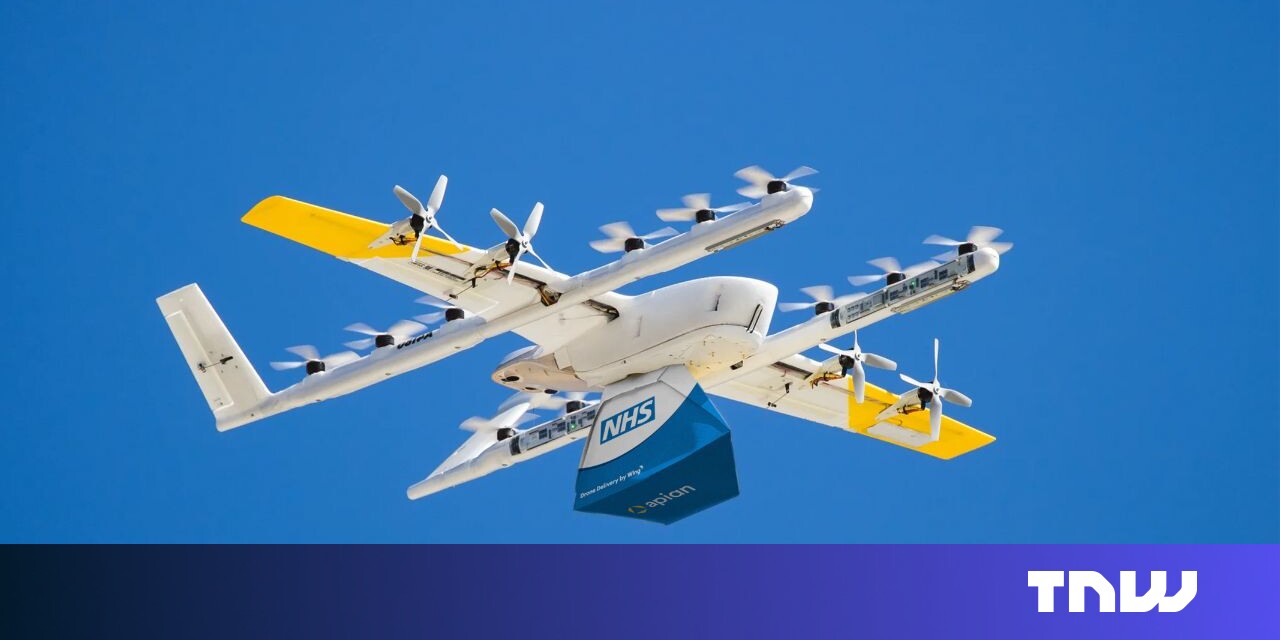This Swedish startup wants to pay the flight tracking community using blockchain
One of the most popular pastimes you may or may not have heard about is flight tracking.
For instance, in September 2022, the Royal Air Force Boeing C-17A Globemaster III carrying Queen Elizabeth II’s coffin from Edinburgh to an RAF base outside of London was followed by close to 5 million people.
It is also a goldmine for data. Popular flight tracking websites display the trajectories of tens of thousands of flights per day across their digitised maps.
But what you also may not know, is that this is only possible due to a network of dedicated volunteers who collect and feed the data from the aircraft to tracking sites.
A new startup called Wingbits now wants to pay the network of enthusiasts for their services by sharing its revenues using blockchain technology. The idea is to foster rapid coverage growth and improve data reliability.
The rewards are based on performance, coverage, and uptime. There are also leaderboards that compare the best performing antennas around the world.
“Based on your performance as a data provider, you get rewarded proportionally,” co-founder Robin Wingårdh, told TNW from the company’s offices in Stockholm.
Incentivising flight trackers through rewarding high quality data
Flight tracking happens through Automatic Dependent Surveillance-Broadcast (ADS-B). This is a new method of satellite-based tracking which requires both an airborne component and ground infrastructure.
About 70% of the world’s commercial aircraft now have an ADS-B transponder. The ground component consists of the volunteers who agree to host receivers in the form of antennas. Wingbits’ network ensures the data’s authenticity with cryptographically signed transmissions and proof-of-location,
The commercial idea behind Wingbits is to incentivise these volunteers to increase their commitment and quality of their data with more and better equipment etc. through paying them for their data and then selling it to the startup’s own B2B customers in the aviation industry.
“[The performance-based model] allows us to do so many things,” Wingårdh said. “Our uptime is really high, and we can release area bounties. If we need to grow in a specific area, we can incentivise higher there.”
But pure-hearted avgeeks may now face some competition from the Web3 community. “We’re trying to balance both communities, which is a bit harder than it sounds, because you try to sell the benefits of two worlds that are a little bit different,” said co-founder Alex Lungu.
It has worked out well so far. At the end of 2023, the Wingbits platform included 40 antennas. Today there are 1,600, simply as a result of word of mouth and the support of the community.
“Now the community has a clear interest to keep their antennas online and make them as good as possible,” Lungu said, adding that the startup gets really technical on its Discord server (which has two community managers) to help people to get the most out of their antenna coverage.
As a result, Wingbits’ platform, despite still being in beta, has very low latency. “It’s under two seconds for 95% of all the data,” Wingårdh said.
Oversubscribed seed round
Lungu and Wingårdh, both of whom previously held senior leadership positions at Klarna, bonded over the idea during a residency by Antler in Stockholm last year. Antler is also one of the investors backing the hatchling startup in its $3.5mn seed round, announced today.
“Robin and Alex are a world-class founding team who have identified a truly unique application for blockchain technology,” said Oscar Westergard, partner at Antler. “They are empowering an overlooked, but deeply engaged, community to create the world’s best flight tracking network.”
Two US VC firms — Web3 asset manager Borderless Capital and early-stage tech specialist Tribe Capital — led the oversubscribed seed round. The money will go toward developing the tech side of things (which means hiring more data scientists and developers, giving Lungu a break from coding), and focus more on sales and marketing.
Wingbits is also releasing custom hardware for its growing community of flight trackers — to ensure it will not fall prey to spoof or fake data.
“While it’s not a massive issue yet it’s growing,” Wingårdh says. “We’re securing all that hardware with a cryptographic chip and a GPS module so we know exactly where the device is, and we can actually validate that the data is coming from that specific device.”

